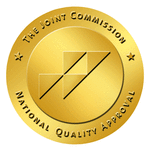Do You Know Why You’re Harming Yourself?
“Self-destructive behavior is often a non verbal way to communicate to other people deeper information about your thoughts, feelings, needs, and experiences. Hurting your body may be a form of self-punishment. Unresolved guilt, shame and unwarranted self-blame about past trauma and neglect can leave you vulnerable to the idea that you “deserve” to be hurt. When you are lacking of self-compassion, self-harm is always possible.” – Lisa Ferentz
Stop Self Harming Urges Now!
It is completely normal and healthy to want to avoid pain and find a way to express your life experiences. You’re not making harmful choices because there is something wrong with you. You make harmful choices because no one ever showed you how to make good choices or made you feel worthy of good choices. However, true healing can begin when you learn to separate who you are from what happened to you.
So, how can you stop self harming urges? Be open to the idea that how and where you hurt yourself is not accidental, coincidental, or meaningless. You are using your body as a “canvas”, showing the pain you cannot talk about. Eating disorders, addictions, and self-mutilation become a way for sexual, emotional, and physical abuse to be communicated.
Why Check Out The Workbook?
1. You’ll get a better understanding of self-harm.
In this book, Lisa provides thorough analysis of the self-destructive behaviors, what they mean, how are they performed, and what causes them. Even through a book, Lisa connects with us as readers on real personal level. Covering the psychological aspects of these disorders, the reader can truly understand his/her condition which is the first step to overcome self-destruction.
2. You’ll be offered a strengths based solution.
The author offers a step-by-step method to help you release repressed emotions. While best used with the help of a qualified mental health professional (a licensed clinical psychologist), her caution in taking deeper steps gives the reader reliability – you feel you’re in safe hands. The exercises included in the book cover the therapy process in whole, while simultaneously helping you identify internal and external triggers and help in their avoidance and confrontation.
3. You’ll be given new hope.
Lisa continuously states that one of the most valuable things for us to hold on to is the idea that everything about us makes sense given what we’ve experienced and where we’ve come from. When we can connect to our emotions and behaviors to past trauma or overwhelming past or present stress, the pieces begin to fit together, and the “symptoms” will start to make more sense to us.
Why Do We Recommend This Book?
Using journaling exercises, drawing and collaging prompts, guided imagery, visualizations, and other behavioral techniques, this book will make you understand, compassionately work with, and heal from these behaviors rather than distracting from or fighting against them, which can dramatically reduce internal conflict and instil genuine hope.
A Note For Mental Health Professionals
There are four major principles that go along with the strengths-based approach to treating self-destructive behaviors: normalizing, universalizing, depathologizing, and re-framing. Here are some key considerations when working with adolescents and young people who are in the cycle of self-destructuve patterns.
- Most people do not come into the therapy process or approach this work with an awareness of how early childhood attachment and relationship dynamics profoundly impact current behaviors and a core sense of self. These should be unfold in time with help of a trained professional.
- Promote the role of attachment and its impact on people’s ability to handle their emotional states.
Wondering where you can find “Letting Go of Self-Destructive Behaviors”? from Lisa Ferentz? To buy, download and read the book, check her site lisaferentz.com. Additionally, if you are left with any questions about this book, we ask you to post them in the section below. We also welcome your feedback if you’ve read the book, and would like to comment and share your opinion.





 RSS Feed
RSS Feed
